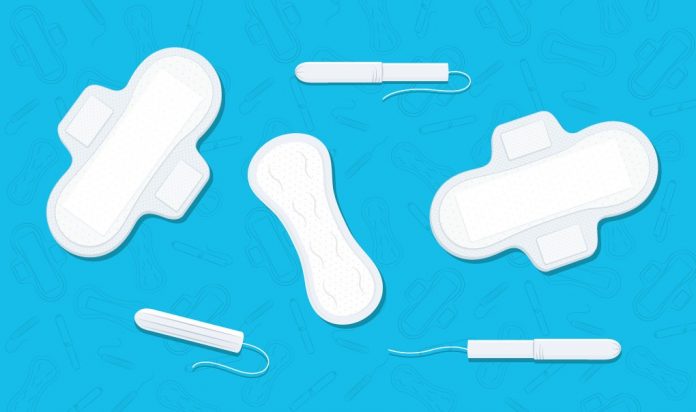
Approximately 50 percent of men in their fifties experience some erectile dysfunction (ED), and there are ads appearing on TV and in print all the time about ED—even during the Super Bowl. At the same time, 50 percent of the entire population gets a period, yet few people talk about it. In fact, there are more than a dozen euphemisms for periods so no one has to utter the words directly. Today a woman’s menstrual cycle continues to be largely considered a taboo, an uncomfortable subject, something not spoken about in “mixed” company—or even among women themselves in many cases.
“That time of the month” or “the curse” or “Aunt Flo” is one of the most natural biological processes that occur in humans in general and women in particular. It can have far-reaching, impacts on women for certain, and for other segments of the population as well.
We will look at women living in poverty, those who are homeless or disabled, those living in developing countries, or who identify as a different gender, or those who are of certain ages or cultural traditions. This will help us understand how those facing menstruation every month with an appreciation of the inequality that surrounds this most basic of human functions.
Women in poverty
Imagine it’s Monday and you have only five dollars in your pocket to last until Friday. You and your two children need food for the week, but you just got your period and you have no sanitary supplies. What do you do? This is a difficult choice for any women, and especially for those who are working and who risk bleeding through their clothing. These kinds of decisions place additional stress on women who are already in extremely challenging life situations.
Some women don’t need to imagine this scenario; it’s a reality. In the United States, 70 percent of the poor are women and children, and 35 percent of single women with children raise their families in poverty. On a global scale, 50 percent of women live in extreme poverty.
According to a recent CBS News report, women cannot use food stamps to purchase sanitary pads and tampons (nor toilet paper or other paper products), but they can buy candy and soda. Medicaid and health insurance also do not help with menstrual health necessities.
Homeless women
In addition to worrying about how to buy or otherwise secure sanitary supplies, homeless women also face issues of privacy. Imagine having to live in a culvert or sleep on a bench at night and also having to deal with menstrual cramps and changing sanitary pads or tampons—or if you even have these items?
These are just a few of the worries homeless women have concerning menstruation. In a 2017 medical journal article, the authors reported on the plight of homeless women with menses, of “limited daytime shelter bathroom access and no access to feminine products,” that “soiled clothing may be cleaned without soap, using dirty water,” and “using toilet paper [from public bathrooms] as makeshift cloth pads.” Homeless women are sometimes forced to use discarded restaurant napkins, old socks, and ripped up clothing as sanitary pads.
This is a problem that crosses all borders. As the authors noted, “although commonly reported in under-developed nations, our Google Scholar search for menstrual hygiene management in the United States homeless women revealed sparse mention of this pervasive health concern.”
Disabled women
Getting your period can be challenging enough, but if you are disabled, the hurdles can be even greater. One reason is that people with disabilities are at greater risk of discrimination as well as a lack of social support.
According to the advocacy group Menstrual Hygiene Day, women and girls with disabilities may have a more negative experience with menstruation than do able-bodied women. They can have more painful or heavy periods and may face challenges in getting sufficient health service support. Maintaining hygiene can be difficult, especially for women who are physically disabled, and they may need to depend on caregivers for all of their menstruation sanitary needs.

School-aged girls
For some junior and high school girls, getting their period is especially frightening because they don’t always have the supplies necessary to manage their menstrual flow. According to a recent study, 20 percent of girls in the United States leave school early or stay home completely because they don’t have access to sanitary products during menstruation. These girls are jeopardizing their education and also contributing to their feelings of shame.
Global Citizen reports that girls having their periods is one reason why female adolescents don’t go to school in parts of the world. For example, UNICEF reports that 10 percent of girls in Africa miss school because of their menstrual periods every year. Some of these girls drop out of school completely.
In many cases, young women don’t have access to sanitary supplies or sanitary conditions, such as clean water, that can make them feel safe and clean. Instead, they face discrimination and are made to feel ashamed about a natural bodily process.
Women in developing countries
The severity of the stigma associated with menstruation varies widely among developing countries. One thing they seem to share is the shame and isolation that girls and women feel when they are menstruating. In the Fiji, Papua New Guinea and Solomon Islands, for example, girls who stain their clothes must give their brothers money “to show respect for disrespect because they see this.”
Women who are menstruating cannot handle food, are forced to live away from others or remain out of sight. They must stay away from their jobs and are expected to avoid churches and gardens because they are considered to be unclean. The natural process of menstruation is extremely challenging to many women around the world and is associated with feelings of shame, guilt, and self-loathing.
According to The Society of Obstetricians and Gynaecologists of Canada, areas of Africa, Southeast Asia, and India have limited access to feminine hygiene products. Women in these areas are forced to use old rags that may not be sanitary to absorb menstrual blood. Disposing of the cloths and access to cleaning themselves properly is severely limited. For homeless women in these countries, feminine hygiene is not considered to be a priority, and so the need is even greater.
Also read how does my period impact the environment
Gender Identity
Recently, the period underwear brand Thinx developed a campaign featuring men having their period. The campaign highlights men of all ages who are menstruating. The message at the end of the commercial says: “If we all had them, maybe we’d be more comfortable with them.” and uses the hashtag #IfWeAllHadPeriods”. It’s an important message to share. Identifying with a gender other than the one you were born with comes with its own challenges and this is another area that addresses inequalities.
Mother Nature
As an addendum, it’s important to note that women and men are not the only ones who must deal with the negative consequences of menstruation. As we’ve reported previously on Naturally Savvy, the impact of menstruation on Mother Nature and our planet is staggering. The disposal of sanitary pads and tampons and all of the packaging, as well as the toxic compounds that leach out of these products into the environment, is of great concern. In this sense, menstruation affects all people on Earth.
What Can Be Done?
A number of states have passed laws to mandate that period products be made available to students for free. Recently prisons started providing them to prisoners for free. Become an activist or advocate for period poverty in your community or support organizations on a global level that provide products to at-risk areas of the world. By becoming aware of the issues and talking about it you are helping spread knowledge and eliminate taboos.
Bottom line
Menstruation is one of the most basic of bodily functions and one that is key to the perpetuation of our species. Yet for 50 percent of the population, it can be a time of shame, fear, self-loathing, embarrassment, and confusion. More women and men need to come together to help change the taboos around menstruation and especially reach out to the marginalized populations that exist in both developed and developing nations.
Menstruation is not merely a monthly event for women of a certain age; it is a process that touches the economic, educational, social, cultural, religious, and environmental aspects of our world. For all of these reasons, we all need to develop a better understanding of the issues and help in any way we can.
[Editor’s Note: Natracare has a great guide for helping end period poverty on their website.]
Read this next:
How Does My Period Impact the Environment?










